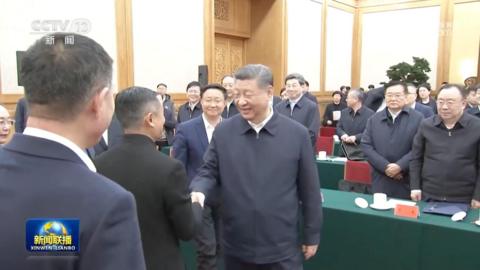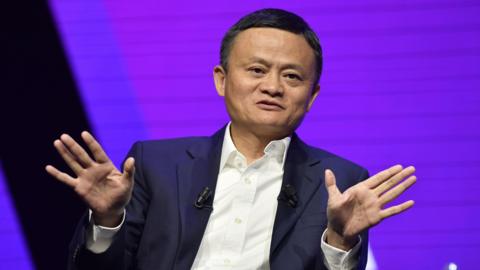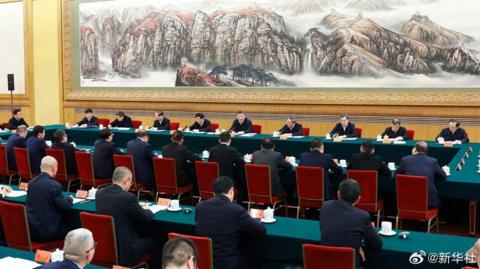Xi Jinping told participants at the symposium that their companies needed to innovate, grow and remain confident despite China's economic challenges, which he described as "temporary" and "localised".
He also said it was the "right time for private enterprises and private entrepreneurs to fully display their talents".
This has been widely interpreted as the government telling private tech firms that they too are back in good graces.
Mr Ma's downfall had preceded a broader crackdown on China's tech industry.
Companies came to face much tighter enforcement of data security and competition rules, as well as state control over important digital assets.
Other companies across the private sector, ranging from education to real estate, also ended up being targeted in what came to be known as the "common prosperity" campaign.
The measures put in place by the common prosperity policies were seen by some as a way to rein in the billionaire owners of some of China's biggest companies, to instead give customers and workers more of a say in how firms operate and distribute their earnings.
But as Beijing imposed tough new regulations, billions of dollars were wiped off the value of some of these companies - many of them tech firms - rattling international investors.
This, along with a worsening global economy that was affected by the pandemic as well as Russia's invasion of Ukraine, has contributed to considerable changes in China's economic situation.
Growth has slowed, jobs for the country's youth have become more scarce and, amid a property sector downturn, people are not spending enough.
As rumours that Mr Ma would attend Monday's meeting began to spread, so did a glimmer of hope. Richard Windsor, director of technology at research firm Counterpoint, said Mr Ma's presence would be a sign that China's leadership "had enough of stagnation and could be prepared to let the private sector have a much freer hand".
Aside from Mr Ma and Mr Liang, the list of guests also included key figures from companies such as telecommunications and smartphone firm Huawei, electric-vehicle (EV) giant BYD, and many others from across the tech and industrial sectors.
"The [guest] list showcased the importance of internet/tech/AI/EV sectors given their representation of innovation and achievement," said a note from market analysts at Citi.
"[It] likely indicates the importance of technology... and the contribution of private enterprises to the development and growth of China's economy."
Those present at the meeting seemed to share that sentiment. Lei Jun, the chief executive of consumer electronics giant Xiaomi, told state media that he senses the president's "care and support" for businesses.


